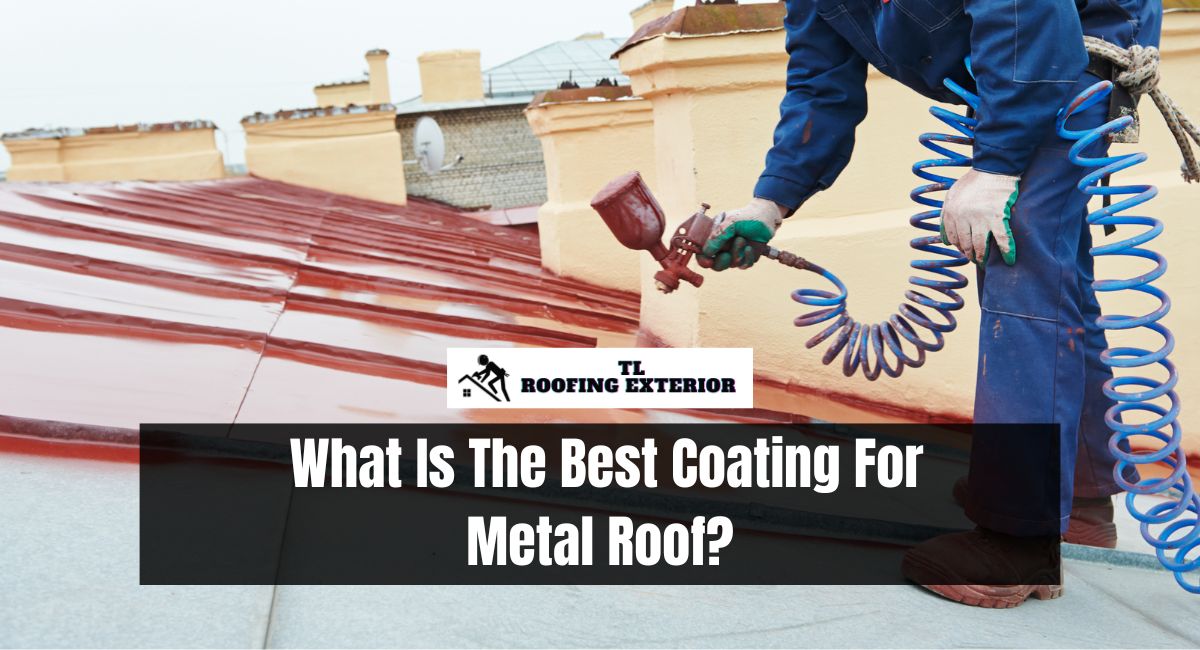Metal roofing is a popular option due to its resilience, energy efficiency, and low maintenance needs. However, even the most resilient metal roofs can benefit from an extra layer of protection provided by a coating. Roof coatings can extend the roof’s life, increase its energy efficiency, and even give it a new color and aesthetic appeal.
But how do you determine which coating is the best for your metal roof, given the availability of acrylics, silicones, elastomeric, and polyurethane?
This article will let you know the various varieties of coatings, their advantages and disadvantages, and the factors to consider when making a decision.
What Is The Best Coating For Metal Roof?
The “best” coating for a metal roof can vary depending on several factors, including the type of metal, the climate, and the specific needs of the project. However, here are some commonly used types of coatings for metal roofs, along with their pros and cons:
1. Acrylic Coatings
Pros:
- Environmentally Friendly: Acrylic coatings are often water-based, making them less harmful to the environment.
- Color Variety: Comes in a range of colors, allowing for aesthetic flexibility.
Cons:
- Chalking: Over time, acrylic coatings can chalk or fade, reducing their effectiveness and aesthetic appeal.
Best For: Acrylic coatings are ideal for residential and commercial buildings in moderate climates where extreme temperature fluctuations and heavy rainfall are not common issues.
2. Silicone Coatings
Pros:
- Longevity: Silicone coatings can last up to 15 years or more, reducing the frequency of re-coating.
- Ponding Resistance: Highly effective against ponding water, making it ideal for flat or low-sloped roofs.
Cons:
- Slippery When Wet: Silicone coatings can be very slippery when wet, which could be a concern for roofs with foot traffic.
Best For: Silicone coatings are often used in industrial settings or in climates with high humidity and rainfall. They are also suitable for roofs that are prone to ponding water.
3. Polyurethane Coatings
Pros:
- Abrasion Resistance: Highly resistant to mechanical damage and abrasion, making it suitable for roofs with heavy equipment.
- Energy Efficiency: Some types of polyurethane coatings have excellent reflective properties, helping to reduce energy costs.
Cons:
- Odor: Solvent-based polyurethane coatings can emit strong odors during application, requiring proper ventilation.
Best For: Polyurethane coatings are commonly used in industrial environments and are ideal for metal roofs that need to withstand mechanical wear and tear.
4. Elastomeric Coatings
Pros:
- Crack Bridging: The high elasticity of these coatings allows them to bridge small cracks effectively, providing a seamless, waterproof layer.
- Noise Reduction: The thickness and elasticity can also provide some level of sound dampening.
Cons:
- Weight: The thickness of the coating adds additional weight to the roof, which may require structural evaluation before application.
Best For: Elastomeric coatings are well-suited for older roofs that may have minor imperfections or for climates with significant temperature swings.
Additional Considerations
- Application Conditions: During application, weather conditions such as temperature and humidity can influence the coating’s performance. Always consult the manufacturer’s instructions.
- Re-coating Requirements: Different coatings have varying lifetimes and may require re-coating at various intervals. Consider the requirements for long-term maintenance.
- Local Building Codes: Always check with local building codes or regulations to ensure the chosen coating meets all requirements, particularly for commercial or industrial applications.
- Expert Consultation: Given the variety of factors that can affect the efficacy of a roof coating, consulting with a roofing expert can provide advice tailored to your specific situation.
What Is The Longest Lasting Metal Roof Coating?
Silicone coatings are commonly regarded as the most durable option for metal roofs. They are highly resistant to weathering, UV radiation, and water ponding and, depending on the application and local conditions, can last up to 15 to 20 years.
In addition to retaining their elasticity and not becoming brittle over time, silicone coatings are durable and long-lasting. However, they can be more costly initially.
Before selecting a coating, you should always consult with roofing professionals and consider your specific requirements, including the local climate and roof condition.
Conclusion
While acrylic coatings are inexpensive and simple to apply, silicone coatings offer superior resistance to UV rays and the elements. In contrast, elastomeric and polyurethane materials offer superior durability and flexibility.
By understanding the benefits and limitations of each coating type and possibly consulting with roofing professionals, you can choose a product that not only extends the life of your metal roof but also improves its performance and appearance.
Read More: What Is A Rake Board On A House?
